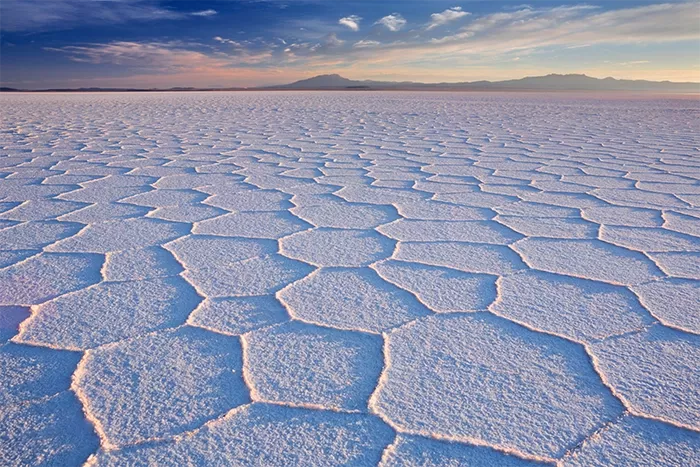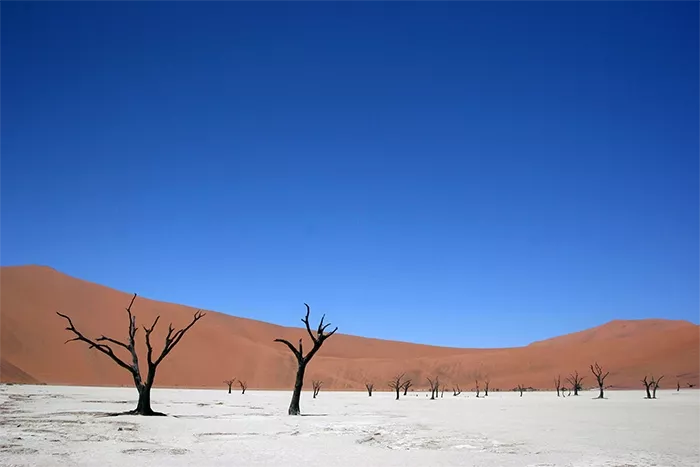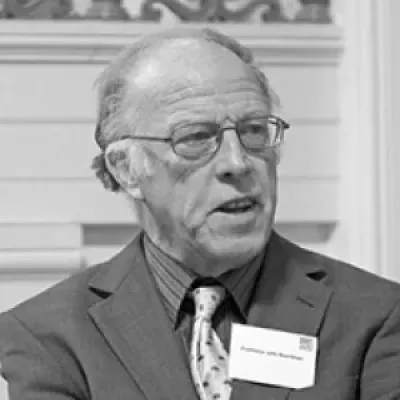This research cluster focuses on landscape processes, long-term landscape dynamics, fluvial and dryland environments and human-landscape interactions. Work incorporates landscape processes, long-term landscape dynamics, fluvial and dryland environments and human-landscape interaction as researchers address issues that form the natural world. Cross-cutting themes investigate today's key geographical question - how the physical environment shapes the Earth and impacts society - through research, fieldwork, modelling and lab-based analysis. Special attention is given to: dynamics and processes in arid environments; fluvial processes; weathering; geochronology, especially luminescence dating; forensic and heritage applications, and interactions between climate, biotic, geomorphic and human systems.
| Landscape processes | This programme focuses on a) land/atmosphere interactions in dryland regions with specific emphasis on investigating multi-scale controls on aeolian dynamics and environmental controls on rock breakdown; and b) geomorphology and heritage preservation through analysis of biological and weathering impact on landscapes and historic structures. Investigations are often multi-faceted and inter-disciplinary using a range of techniques including fieldwork, laboratory simulation and computer modelling. |
| Long-term landscape dynamics | In this programme a range of field and laboratory methods are utilised to address critical questions in the long term (102 - 106 years) evolution of arid environments (drylands) where a range of proxy data sources indicate that their extent has fluctuated markedly during the Quaternary period. Climate change impacts in the 21st century are widely predicted to impact on the extent and distribution of arid regions, particularly in the low latitudes. Research comprises a number of specific projects within the themes of: better and more robust utilisation of palaeoenvironmental proxies to model late Quaternary climate dynamics in arid regions; developing enhanced protocols for the application of optical dating to lacustrine and aeolian sediments; establishing the role of climate change in human migration and evolution in Africa; and predicting dryland responses to 21st century global climate change. |
| Dryland environments | Drylands presently cover 40-47% of the Earth's land surface and are home to > 1 billion people. Several cluster research projects address landscape dynamics in arid lands. Work includes sand transport, dune mobilization, rock breakdown, past environmental changes, natural hazards, climate impact and the intersection of human and natural systems. Current fieldwork is in Southern and Western Africa, the Middle East and Iran, China/Mongolia and the southwestern US. |
| Human-landscape interaction | Physical processes can have a great impact on people and society. Research on climate, hazards, drought, dust and soils are examples of how landscape forces may influence livelihoods, communities, economics and ultimately governance. As environmental factors continue to evolve integrating the physical and social worlds is essential to address global issues. |
| Fluvial processes | This programme focuses on the hydrologic and geomorphic drivers of fluvial flooding. Flooding is the world's greatest hazard in terms of population exposure, with over one billion people affected every year. Yet there is still limited understanding of the drivers that influence flood characteristics in different regions of the globe. Flood estimates and models often rely on a static description of the historical flood record and of the physical landscape, when flood characteristics are changing rapidly and dynamically - through an altered frequency of meteorological extremes, shifts in land cover, and morphological changes in the ability of rivers to convey flood waters. The overarching vision of this work programme, through UKRI-funded projects EvoFLOOD (2021-2026) and DRIFT (2021-2025), is to enable new understanding of the dynamic drivers of river behaviour to better predict flooding decades into the future. |
Cluster research is funded by NERC, EPSRC, ESRC, Royal Society, Leverhulme Trust, NASA, English Heritage, British Academy, Royal Geographical Society, DfID, Medecins sans Frontieres, British Council, Boise Fund and other sources.
The cluster maintains strong international affiliations, with collaborative research including engagement with the Universities of Cape Town, Witswaterand, Arizona, UCLA, Mongolia, Chinese Academy of Sciences and other overseas institutions.






















